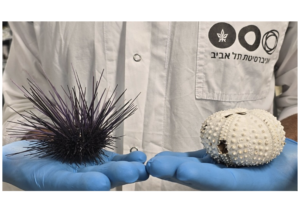Israeli Bumblebees Sent to Japan following Mass Death of Local Hives

(JNi.media) Whole colonies of Israeli Bees are being sent from Israel to Japan to help farmers overcome the damage caused by the Japanese bees shortage, which has worsened due to the use of pesticides in rice fields.
The Bees making their way to Japan flew in airy hives, each including a fertile queen accompanied by fifty drones who takes care of all her needs.
Members of Bio-Bee, in Kibbutz Sde Eliyahu in northern Israel, some two miles south of Beit She’an, who nurture and ship the bees, take care of the queen and the workers to ensure comfortable, first class flight conditions. Each hive is equipped with a small bag of sugar water in a special drinking facility, a delicious alternative to airplane meals.
The bees make only one fast connection in Moscow, but do not enjoy duty free store privileges.
Upon their arrival in greenhouses across Japan, the Israeli bees get busy pollinating vegetable crops. Without bees, it is nearly impossible to raise some crops. And, contrary to what people think of Israelis, the Kibbutz Sde Eliyahu bees are renowned for their mild temperament and are not quick to sting, so farmers can work alongside them without fear.
Bio-Bee bumblebees do not produce honey, they only pollinate. They have been bred to carry out their work even when the weather gets cold, cloudy and rainy, when honey bees turn inactive and prefer to gather inside the hive.
While extracting nectar from the flowers, the bees spread the pollen around.
Pollinating bees have begun to serve Israeli farmers several years ago, when the population of Israeli honey bees started to diminish. The advantage of these bumblebees is that they tend to stay within the closed structure of the greenhouse and don’t go out to seek greener—or sweeter—pastures.
The decline in the number of bees is a global phenomenon, made worse in Japan as a result of pesticide spraying in the rice fields around the country. Testing conducted by the Japanese Ministry of Agriculture showed that many cases of death have occurred when bees which had been exposed to pesticides during the search for nectar return to the hive and expand the scope of the poisoning.
Generally, the bumblebee is a social insect, maintaining contacts and cooperation between different individuals that belong to the same colony. The bumblebee community has a number of groups, each with a defined role. The colony Queen is the head, but she does not look very different from the drones, other than being bigger.
Source JNi.media






